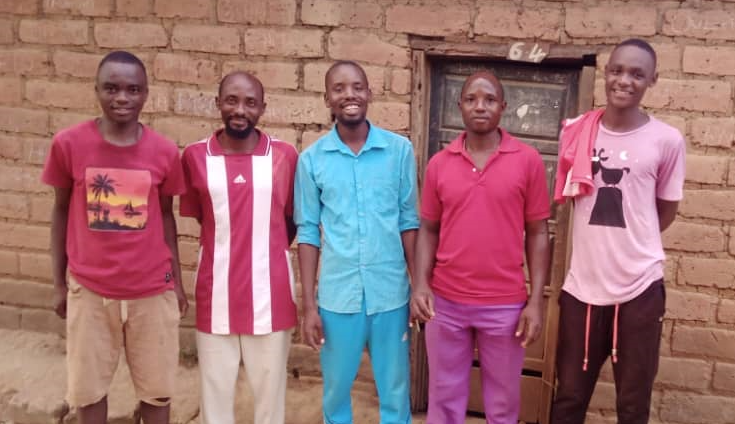First-Time Fathers in Tanzania Help One Another to Support Their Partners
Published on June 9, 2022
Far too often, new mothers are left to raise their babies without much support from their partners, not out of inattentiveness but because the new fathers are unsure how to be helpful or due to existing social norms. That is changing in Tanzania, where MOMENTUM Integrated Health Resilience works with groups of first-time fathers to support their partners. With the help of a community health worker, the men learn about the challenges their partners face as new mothers, and how they can address those challenges.

Maliki Andrew, a 28-year-old farmer, living in the Uvinza District of the Kigoma region in the western part of the country, jumped at the chance to join the First Time Parent Program. He and his wife are the proud parents of an 11-month-old daughter. “I heard about the project from a community health worker (CHW) when he registered my wife in the first-time mothers’ peer group. After attending the first meeting, she invited me to attend the men’s group sessions,” Maliki explains. He enjoyed interacting with other men in the community and pointed out how beneficial it is to discuss intimate issues including sexual and reproductive health with other men. “I learned about family planning and its benefits,” he says, “which will help my wife stay healthy and raise our baby well. Now my wife has started using a family planning method.”
Each first-time fathers group meets monthly, facilitated by a community health worker, and covers topics ranging from healthy timing and spacing of pregnancy to population, health, and the environment. A CHW says of Maliki, “He and his wife married when she was 17 years old. They delayed having a child until she was 20, when they thought they would both be physically and mentally more mature. Now he helps her with household chores and plays with the baby when he is at home, making time for his wife to engage in other activities without the constant pressure of attending to the child.”

As a result of the men’s groups, there has been an increase in the number of men escorting their wives to health care facilities for antenatal care or delivery. There has also been an uptake in the number of women who utilize the family planning methods of their choice, often in consultation with their partners. To date, 381 men in the Kigoma and Katavi regions of western Tanzania have participated in the program.
Maliki says he learned that he has a responsibility to help his wife with household chores and that they need to make decisions together. He hopes that more fathers in Tanzania will participate in groups that help them become better partners, saying, “They will be able to transform and care deeply about their families, be in loving relationships with their partners, and ultimately fulfill their dreams.”

